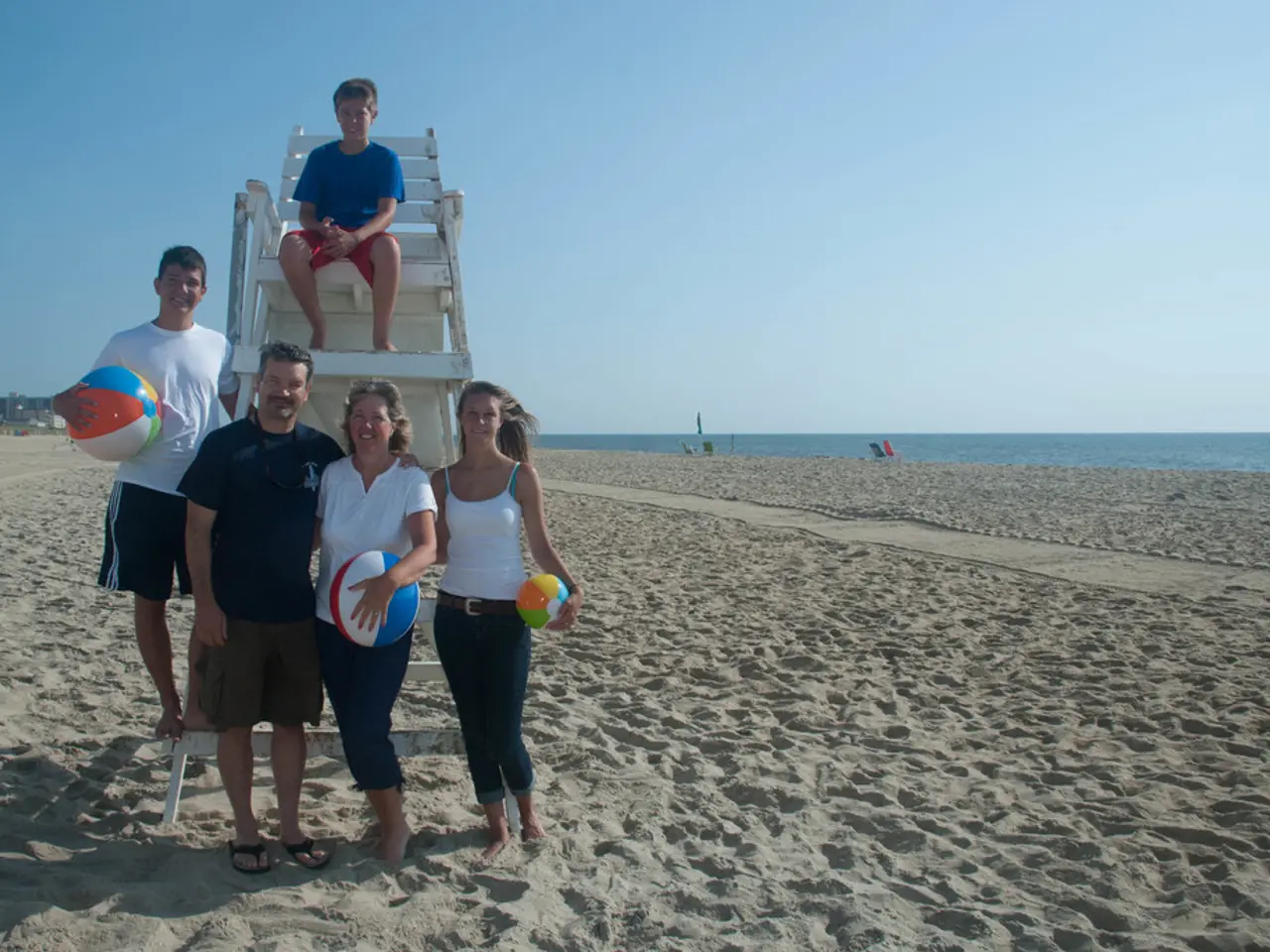"Mathieu van der Poel voices concerns about potential risks arising from an expansion of the Tour de France peloton"
The Professional Cycling Council (PCC) has announced a significant change for the 2025 Tour de France, increasing the peloton size from 176 to 184 riders, adding a 23rd team and eight more riders at all three Grand Tours. However, this decision has sparked concerns about safety among some riders, including Mathieu van der Poel.
Van der Poel, a prominent cyclist from Alpecin-Deceuninck, expressed his concerns at his pre-Tour press conference, citing potential dangers due to increased congestion and reduced space for riders to maneuver in the larger peloton. While there is no specific research directly addressing the impact of a larger peloton on safety in cycling races like the Tour de France, safety measures and equipment regulations are continually being evaluated to improve overall safety in cycling races.
The Tour de France has been pivotal in setting safety standards, such as mandatory helmet use, which was officially enforced by the UCI in 2005 following earlier tragedies. However, these measures do not specifically address the size of the peloton. The dynamics of a larger peloton might increase the risk of crashes due to increased competition for space and positions, but this aspect is not directly addressed in the available research.
Adam Hansen, president of the Cyclistes Professionnels Associés (CPA), has spoken about the decision, stating that the peloton wouldn't be increased to its previous capacity of 198. He explained that the nature of the extra team being a second division ProTeam changes what an extra eight riders would look like. Hansen also pointed out that, even with the increase in riders, about five to 10 riders normally go home due to crashing early on, so the increase isn't a huge difference.
Hansen spoke to several riders about the potential issues of the increased peloton size, and their response was generally positive. ProTour teams added to the peloton are expected to participate in early breakaways rather than competing in the most dangerous moments of the race.
The first 10 stages of the 2025 Tour de France are expected to be challenging, with a mix of sprint stages and punchy finishes. Many riders have described the upcoming Tour de France as "hectic", "chaotic", and "nervous". Van der Poel, however, feels that the bunch will always be unsafe, regardless of the number of riders, and that reducing the number of teams and riders would make the biggest difference for safety.
The outcome of whether the UCI, PCC, and CPA made the correct decision regarding the increased peloton size won't be fully clear until the Tour de France unfolds on the road. For those keen to follow the event closely, a Cyclingnews subscription provides unlimited access to extensive coverage, including breaking news, analysis, pro tech, live race reports, and a daily subscriber-only newsletter with exclusive insights.
Van der Poel, despite the general positive response from other riders, continues to express his concerns about the increased peloton size for the 2025 Tour de France, suggesting that reduced space for maneuvering could potentially lead to more dangers. Despite safety measures and equipment regulations being evaluated, there is no specific research addressing the impact of a larger peloton on safety in cycling races.
Adam Hansen, president of the Cyclistes Professionnels Associés (CPA), acknowledges that the peloton wouldn't be increased to its previous capacity, explaining that the nature of the extra team being a second division ProTeam changes the dynamics of the increased rider count. However, Van der Poel maintains that reducing the number of teams and riders would make the biggest difference for safety, as he believes that the bunch will always be unsafe, regardless of the number of riders.





